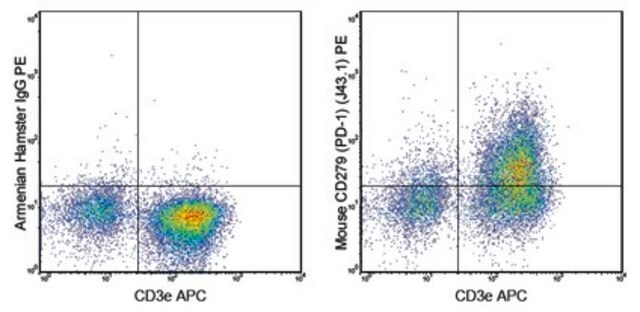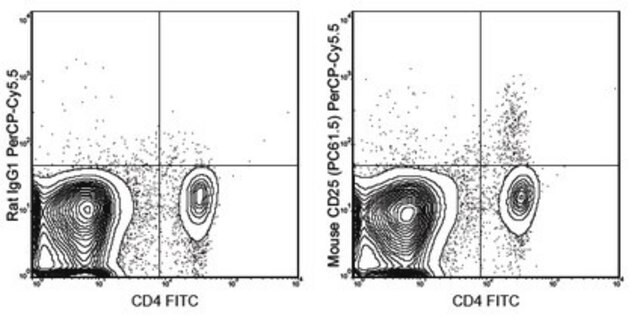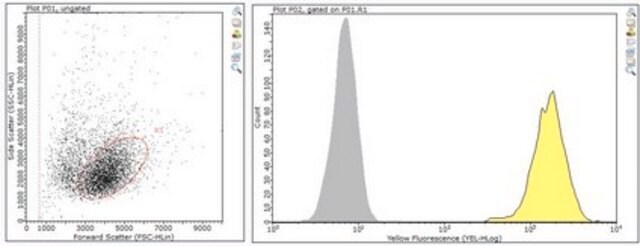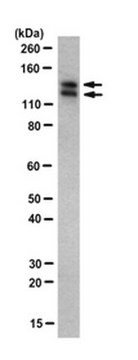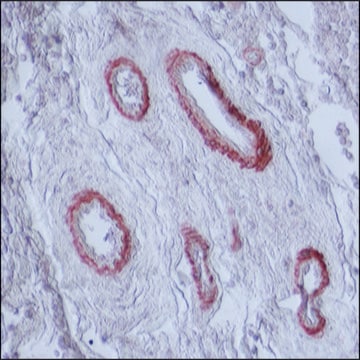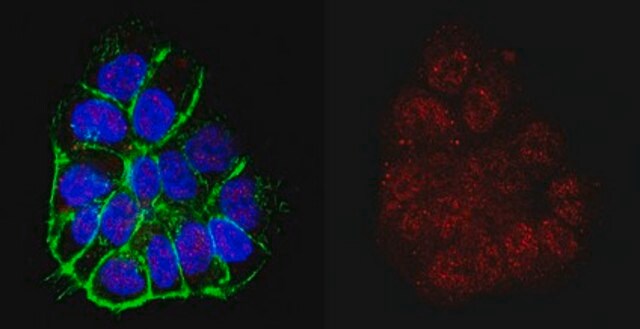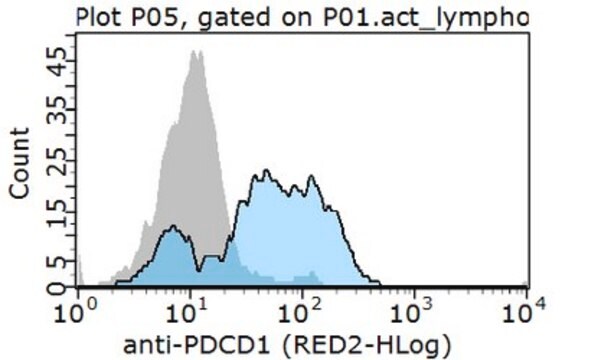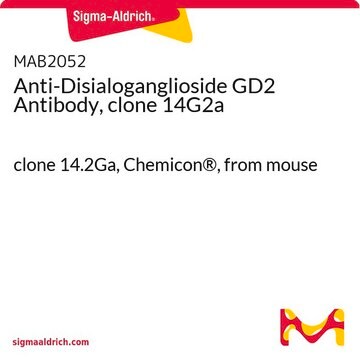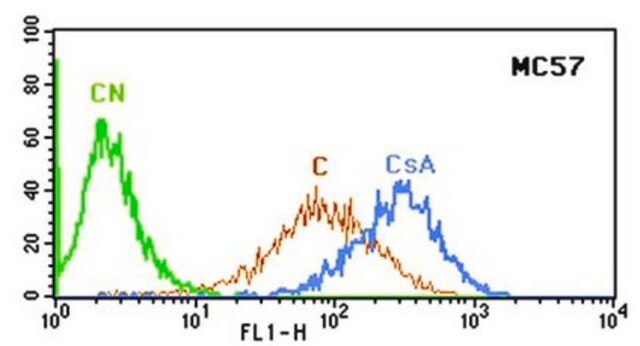MABF406
Anti-CD279 (PD-1) Antibody (mouse), PE, clone J43.1
clone J43.1, 0.2 mg/mL, from hamster(Armenian)
Synonyme(s) :
Programmed cell death protein 1, Protein PD-1, mPD-1, CD279
About This Item
Produits recommandés
Source biologique
hamster (Armenian)
Niveau de qualité
Conjugué
PE
Forme d'anticorps
purified antibody
Type de produit anticorps
primary antibodies
Clone
J43.1, monoclonal
Espèces réactives
mouse
Concentration
0.2 mg/mL
Technique(s)
flow cytometry: suitable
immunohistochemistry: suitable
immunoprecipitation (IP): suitable
Isotype
IgG
Numéro d'accès UniProt
Conditions d'expédition
wet ice
Modification post-traductionnelle de la cible
unmodified
Informations sur le gène
mouse ... Pdcd1(18566)
Description générale
Immunogène
Application
Inflammation & Immunology
Qualité
Flow Cytometry Analysis: 0.5 µg of this antibody detected CD279 (PD-1) in one million C57Bl/6 splenocytes.
Forme physique
Stockage et stabilité
Clause de non-responsabilité
Vous ne trouvez pas le bon produit ?
Essayez notre Outil de sélection de produits.
Code de la classe de stockage
12 - Non Combustible Liquids
Classe de danger pour l'eau (WGK)
nwg
Point d'éclair (°F)
Not applicable
Point d'éclair (°C)
Not applicable
Certificats d'analyse (COA)
Recherchez un Certificats d'analyse (COA) en saisissant le numéro de lot du produit. Les numéros de lot figurent sur l'étiquette du produit après les mots "Lot" ou "Batch".
Déjà en possession de ce produit ?
Retrouvez la documentation relative aux produits que vous avez récemment achetés dans la Bibliothèque de documents.
Notre équipe de scientifiques dispose d'une expérience dans tous les secteurs de la recherche, notamment en sciences de la vie, science des matériaux, synthèse chimique, chromatographie, analyse et dans de nombreux autres domaines..
Contacter notre Service technique